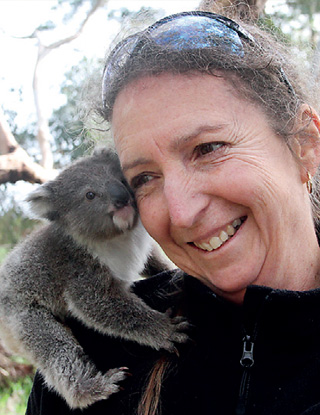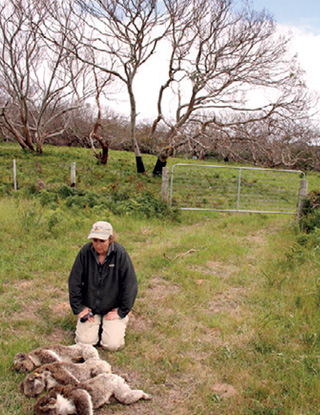Tuesday Feb 17, 2026
Tuesday Feb 17, 2026
Wednesday, 14 July 2021 00:00 - - {{hitsCtrl.values.hits}}

Dr. Desley Whisson

Koala and Joey

Over abundance

Media clips
|
Koala
|
The Wildlife and Nature Protection Society will hold its monthly lecture titled ‘When human-wildlife conflicts involve an iconic species’ tomorrow (15 July) via zoom and FB live at 6 p.m.
The lecture will be delivered by Dr. Desley Whisson. She will discuss the challenges of managing iconic species, using the Koala as a case study. She will discuss the pros and cons of translocation and fertility control, and the need for pro-active and scientifically-based management strategies.
Dr. Whisson is a terrestrial wildlife ecologist and Senior Lecturer in Wildlife and Conservation Biology at Deakin University, Victoria, Australia. She conducts applied research that seeks to inform management of wildlife species, particularly those involved in human-wildlife conflicts. She has conducted research on overabundant native species and their management in Mexico, North America, and Australia.
Dr. Whisson began working with Koalas in 2004, undertaking research to understand the ecology and behaviour of high-density Koala populations, and the effectiveness and welfare outcomes of translocation and fertility control. She has published over 80 scientific papers, a book and several book chapters, and serves on several expert panels advising the government on Koala management.
WNPS said worldwide, many native wildlife species have become locally abundant or have increased in geographic range. In some situations, this has resulted in impacts on human health or livelihood, damage to ecosystems through unsustainable browsing or grazing, introduction or spread of infectious diseases and parasites to new areas, and a reduction in species diversity or richness.
There are numerous examples of such conflicts. In east Africa, populations of elephants in some reserves have increased and now are damaging their environment and coming into conflict with local communities. In Japan, the Sika deer has expanded its range by almost 70%, resulting in considerable browsing damage to crops and native vegetation.
Managing human-wildlife conflicts is challenging at the best of times but is especially so when the species at the centre of the conflict is iconic. In such cases, wildlife managers have the difficult task of developing socially acceptable management strategies. Although culling is used frequently for many species, it is rarely considered appropriate to manage iconic species, leaving translocation, fertility control, biocontrol (introduction of disease or predators), or habitat manipulation as the only management options.
In Australia, the iconic Koala presents some significant management challenges. Although populations are declining throughout much of its range, in some parts the southern states of Victoria and South Australia, Koala populations can reach high, unsustainable densities. In these situations, their browsing on preferred tree species can result in defoliation and widespread death of trees, leading to mass starvation of Koalas, and irreversible damage to the ecosystem. Management tends to be reactive in response to public pressure, and relies on translocation and fertility control, without regard to true effectiveness.
The Nations Trust WNPS Public Lecture is presented in association with Nations Trust Bank and open to all. Please signup online on: https://forms.gle/67vSKzH2uwXozkQq9.